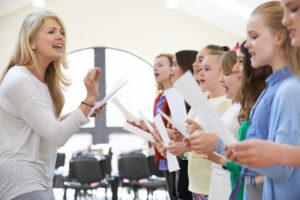You’ve probably heard that music is “good for the brain,” but what does that actually mean? As private music teachers who’ve worked with students of all ages—from toddlers to retirees—we see the transformation firsthand. Whether it’s sharper focus, better memory, or increased confidence, the brain benefits of music lessons are real, measurable, and far-reaching.
Science backs us up—and it’s not just about becoming a better musician. It’s about becoming a better learner, thinker, and even communicator.
Your Brain on Music: The Research
Modern neuroscience shows that music training:
-
Engages both hemispheres of the brain simultaneously
-
Boosts working memory and processing speed
-
Enhances fine motor coordination
-
Strengthens the auditory cortex, improving listening and language skills
A 2021 study published in Frontiers in Psychology found that children involved in consistent music training had improved executive functioning, including better task switching and emotional regulation. Adults, too, benefit from increased neuroplasticity—even those who begin lessons later in life. [Read more from the NIH]
More Than Music: Cognitive Skills Students Build
Here’s what we see in our students every day:
-
Focused attention during lessons and practice
-
Stronger memory recall—especially in school subjects like math and reading
-
Improved spatial-temporal reasoning (hello, puzzle-solving and STEM skills)
-
Better stress regulation through expressive play and structure
In short, music becomes a gym for the brain—and every lesson is a workout.
Why Private Lessons Work So Well
Group music classes are wonderful, but private lessons offer cognitive advantages:
-
One-on-one attention allows students to move at their own pace
-
Immediate feedback helps build accurate muscle memory
-
Personalized instruction keeps the brain engaged with just-right challenges
Private instruction also creates a safe, low-pressure environment to make mistakes, try new things, and build resilience—qualities that spill over into other areas of life.
Want to learn more about how music lessons help kids grow? Check out this blog on starting piano lessons the right way.
FAQ: Music and Brain Development
At what age do music lessons start benefiting the brain?
As early as preschool! But the brain benefits of music lessons exist at any age—from toddlers to seniors—thanks to lifelong neuroplasticity.
Do adults still get brain benefits from learning an instrument?
Absolutely. In fact, learning an instrument as an adult may help protect against age-related cognitive decline.
Does musical ability equal intelligence?
Not exactly—but music training does enhance the brain’s ability to process information, which can boost performance in academic and daily tasks.
